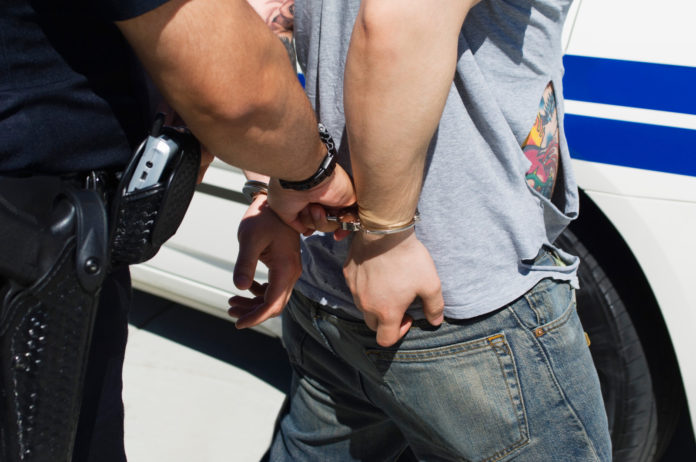TARZANA, Calif. – The investigation is ongoing into an hours-long SWAT operation that took place Monday at an unlicensed cannabis dispensary located in Tarzana, California.
According to the Los Angeles Police Department and media reports, the LAPD responded to a reported armed robbery involving four male suspects at 18346 Ventura Blvd., arriving a little after 1:30 p.m. The call led them to discover an unlicensed cannabis dispensary in a strip mall at the location.
The situation evolved into a SWAT operation as people were evacuated from the strip mall and nearby businesses. A six-lane section of busy Ventura Blvd. was closed in both directions throughout the standoff, which lasted until late evening.
At 7 p.m., an LAPD spokesperson told media police believed a male suspect to be barricaded inside the location with a possible female hostage. Earlier in the day, media reports said a male suspect had been detained, but it was unclear whether he had been charged.
The standoff was officially ended at 10:40 p.m. By then, SWAT had obtained a warrant to enter the unlicensed dispensary and forcibly entered to find the premises uninhabited. It was not clear whether cash or product was stolen, but LAPD later told media they believed the suspects fled the scene moments before police first arrived. The suspects are presumed to be at large.
The incident highlights issues with unlicensed cannabis dispensaries in Los Angeles County and elsewhere. The black market and illegal dispensaries, in their Wild West legal environment, create challenges for heavily regulated legal operators. Anti-cannabis advocates also often cite increased crime rates associated with black market dispensaries as an argument against cannabis legalization in general, though evidence may indicate otherwise.
A study by nonprofit think tank Rand Corporation published in May looked at the relationship between California counties with storefront dispensaries and related increases in local crime. While study authors did find a possible correlation between the presence of cannabis dispensaries and property crimes, they also cited that other pre-existing factors might influence property crime statistics.
Study authors stated: “We find no evidence that ordinances allowing for marijuana dispensaries lead to an increase in crime. In fact, we see some evidence of a reduction in property crime along with an increase in DUI and misdemeanor marijuana arrests, pointing to possible increases in misuse of marijuana that do not result in more crime. Supplementary analyses indicate that the significant effects may be driven by pre-existing trends, so we limit our conclusions to the fact that counties allowing dispensaries did not experience an increase in crime.”
In early September, Los Angeles County prosecutors charged 515 people related to 105 “illegal marijuana operations.” At the time, the City reported that 163 temporary licenses to operate had been issued since January. However, both law and regulatory officials agree that there are several hundred cannabis businesses operating in the county.
Officials’ concerns regarding cannabis-associated crime has also expanded to include proposed cannabis delivery services, which would supply consumers in areas where retail storefront facilities are not easily accessible. In mid-September, the California Police Chiefs Association and The League of California Cities voiced their opposition to cannabis delivery services, based on the potential for increased robberies.
President of the California Police Chiefs Association and San Jose-area Police Chief David Swing told the Los Angeles Times, “[Cannabis delivery services] will make it easier and more lucrative to rob a delivery person than a liquor store. Robberies are the tip of the iceberg. They can lead to other crimes, including aggravated assaults and homicides.”
Licensed dispensary operators in Los Angeles County and throughout California have long decried the presence of unlicensed vendors who, legal sellers point out, do not pay taxes, fees, or for many other expenses related to operating a legal cannabis business, as well as the ability of illegal operators to sell products that do not comply with rigorous state regulations.
Federal prohibition also prevents access traditional merchant banking, so cannabis transactions in the U.S. are typically cash-only. Though legal and unlicensed dispensaries go to elaborate lengths to provide maximum security with tactics like delayed entry check-in, armed security guards, and close-circuit cameras, cannabis businesses are forced to tolerate an increased level of risk, due to lack of payment processing or merchant banking accounts.
California legislators in August rejected a bill that would have created state-chartered banks for the cannabis industry businesses.
In April, California regulators sent cease-and-desist letters to unlicensed cannabis business operators statewide. Nearly 670 of those were reported to have gone to businesses located in the Los Angeles metro area, according to US News.












